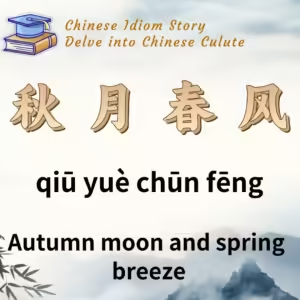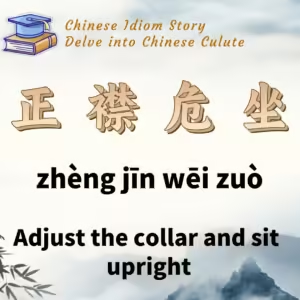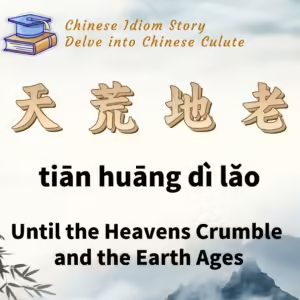
Chinese Idiom: 晓风残月 (Xiao Feng Can Yue)
English Translation: Morning breeze and the waning moon
pīn yīn: xiǎo fēng cán yuè
Idiom Meaning: This idiom evokes a sense of desolation and melancholy, often describing a lonely and somber atmosphere. It can also refer to the scene of dawn, when the gentle breeze blows and the moon is about to set.
Historical Source: Yuyin Ling (《雨霖铃》) by Liu Yong (北宋 柳永)
Idiom Story:
Liu Yong, originally named Liu Sanbian, was a prominent poet of the Northern Song Dynasty, known for his lyrical works. He lived during a time of significant social and economic development, with urban prosperity on the rise. However, Liu Yong’s early career was marked by failure in the imperial examinations, leading him to frequent taverns and pleasure houses, where he mingled with entertainers and composed numerous lyrical pieces.
Despite his popularity among the common people, Liu Yong faced disdain from the aristocracy and was denied high-ranking positions. Emperor Renzong of Song, believing Liu’s lifestyle to be morally questionable, mocked him and relegated him to a life of minor official duties. In his later years, although Liu finally passed the examinations, he remained politically unsuccessful and died in relative obscurity, reportedly buried by the funds of the courtesans he had associated with.
Liu Yong’s Yuyin Ling is a hallmark of his lyrical work, expressing the sorrow of parting and the depth of romantic longing. The poem captures a farewell scene through the voice of a woman, detailing the emotions tied to separation.
The poem begins with the melancholy sound of cicadas, against the backdrop of a fading twilight as a sudden rainstorm subsides. Despite attempts at merriment over drinks, the parting guests are filled with sadness. The imagery of grasping hands, teary gazes, and unspoken words creates a poignant atmosphere.
As the scene unfolds, the narrator reflects on the vastness of the world and the uncertainty of future reunions, lamenting that those with deep feelings are always hurt by separations. On this chilly autumn night, she questions where her loved one will wake after drinking, evoking the desolate feeling of dawn as the waning moon sets, and the gentle breeze stirs the air.
This idiom, rooted in Liu Yong’s evocative imagery, encapsulates the feelings of loneliness and nostalgia associated with farewells and the passage of time. It reminds us of the beauty and sorrow intertwined in the moments of separation, particularly in the quiet hours of dawn.






